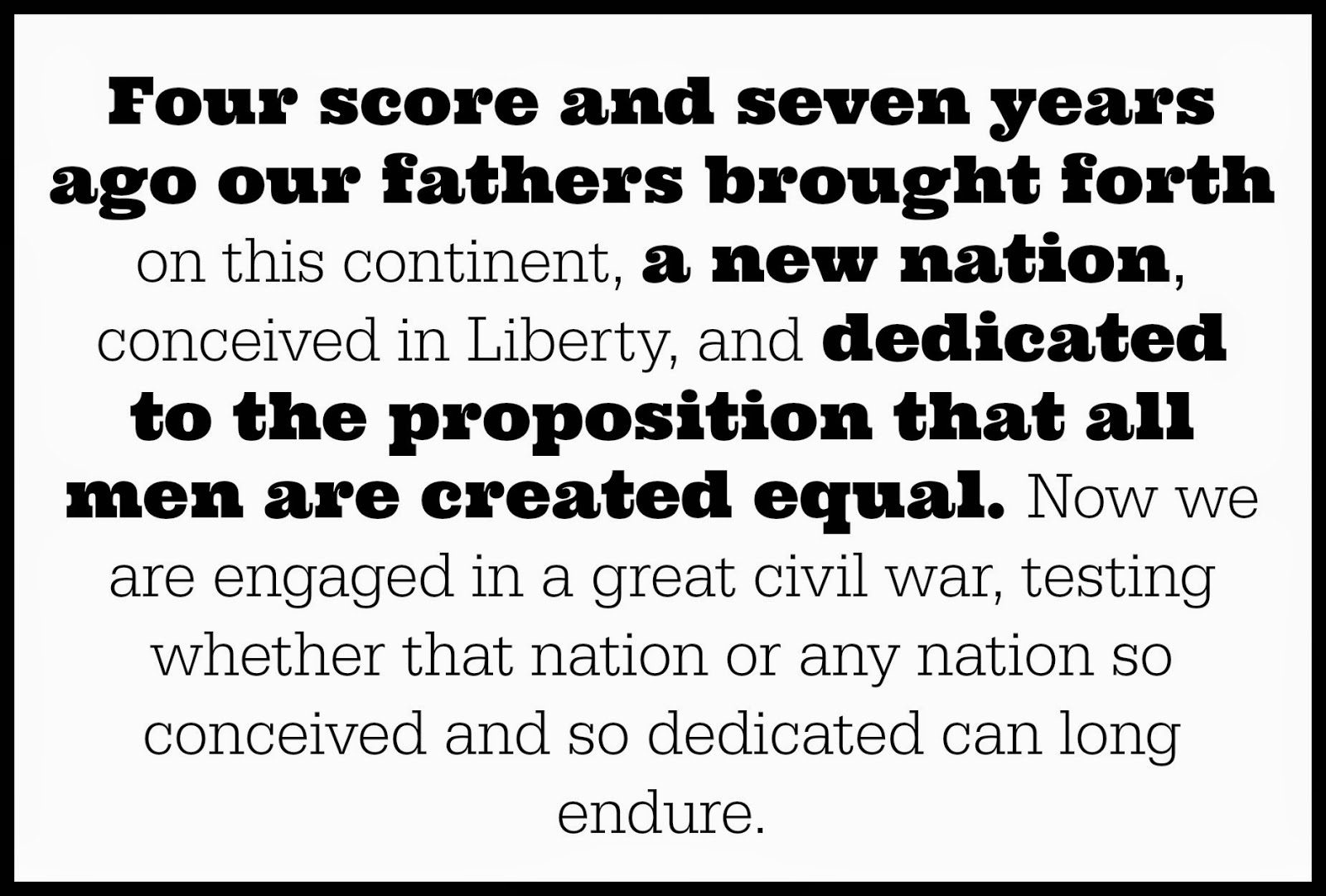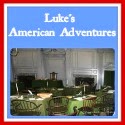In the immediate aftermath of the Battle of Gettysburg, July 1–3, 1863, the dead were hastily buried in trench graves in the fields. A battlefield preservation committee was formed and land was purchased as memorial grounds, including an area for a National Cemetery. Reinterment of soldiers from the Gettysburg Battlefield graves began on October 17, with plans to formally consecrate the cemetery the following month. The committee for the Consecration of the National Cemetery at Gettysburg sent President Lincoln an invitation to the event, "It is the desire that, after the Oration, you, as Chief Executive of the Nation, formally set apart these grounds to their sacred use by a few appropriate remarks."(1) He was not the featured speaker - that task was given to Edward Everett - but the committee felt that it was important that the President be invited to the momentous occasion.
On the morning of Thursday, November 19, 1863, Edward Everett delivered his two-hour oration (from memory) on the Battle of Gettysburg and its significance, and the orchestra played a hymn composed for the occasion by B.B. French. Lincoln, the quiet, self-taught man born in Kentucky, then rose to the podium and addressed the crowd of 15,000 people. He spoke for less than two minutes, and his entire speech was only 272 words long. He began:
Less than a year before, Lincoln had issued the Emancipation Proclamation. When the Founding Fathers drafted the Declaration of Independence, slaves had been excluded from equality. Lincoln, however, truly meant “all men are created equal,” regardless of race or heritage. In the address, Lincoln states that this battle, and by implication, this war, was about bringing the words of the Declaration into reality.
The essential themes and even some of the language of the Gettysburg Address were not new. In his July 1861 message to Congress, Lincoln had referred to the United States as “a democracy–a government of the people, by the same people.” The radical aspect of the speech, however, began with Lincoln’s assertion that the Declaration of Independence, not the Constitution, was the true expression of the Founding Fathers’ intentions for their new nation. At that time, many white slave owners had declared themselves to be “true” Americans, pointing to the fact that the Constitution did not prohibit slavery, but according to Lincoln, it was the initial 1776 nation-establishing document, “dedicated to the proposition that all men are created equal,” that defined what an American was. In an interpretation that was radical at the time–but is now taken for granted–Lincoln’s historic address redefined the Civil War as a struggle not just for the Union, but also for the principle of human equality.
Lincoln went on:
Lincoln pointed out two things. “We are met on a great battlefield,” on the surface, sounds pretty obvious -- they’re standing on the fields of Gettysburg. However, it wasn’t just soldiers fighting on a distant field. The entire nation was a battlefield, from the public square to the private home where brother pitted himself against brother. Lincoln knew that this this speech was not for just a new collection of stone monuments, but a dedication to the courage of those who died to uphold America’s founding principles.
The Union had won two major victories that year. Lincoln considered it significant that the Union victories at Gettysburg, Pennsylvania and Vicksburg, Mississippi had both occurred on the same day: July 4, the anniversary of the announcement of the Declaration of Independence. However, Lincoln recognized that the victories had come at a great price. Coming on the heels of Antietam, the bloodiest single day of fighting, Gettysburg was the deadliest battle of the war. In addition, the war wasn’t over yet. Not only did the battles continue, but Lincoln knew that there there would be as much reconciliation once the war was over as there was fighting during it. Even if the Confederacy surrendered that day, there was an entire nation to heal and rebuild. His words were also a call to action - for people to not say, “It’s the Army’s war,” but instead to say “This is our country, this is our war.”
Lincoln concluded:
When Lincoln talked of “a new birth of freedom,” he was making reference to the Founding Fathers and the ideals of “Life, liberty, and the pursuit of happiness” that were first stated in the Declaration of Independence. During that initial struggle for freedom from the tyranny of England, it was easy to fight because the oppression was current. While the day was dedicating a cemetery that would contain the bodies of a few hundred, Lincoln was in essence dedicating an entire nation to the thousands who fought for its principles throughout the "four score and seven years." Those who joined the Army did so because they believed it was a path to a better life, for themselves and their country. Like today’s soldier, they believed in their country enough to be willing to risk dying for it. Lincoln wanted people to remember that the nation was fought for, and belonged to, all Americans, not just the ones buried in the fields of Gettysburg.
Throughout the Gettysburg Address, Lincoln reiterates a common theme from his presidency. The nation consisted of the people, was founded by the people, and was intended for the people. While the Founding Fathers set the ideals that the United States was founded upon, slaves were excluded from equality; it was a sad but necessary compromise to attain a unanimous coalition against Britain. However, in his heart, Lincoln believed all men were equal, regardless of race, and this war was fought by men who felt the same. Lincoln knew that the dedication meant more than just honoring the men who died at Gettysburg - part of “the people”, but also honoring their courage to die for their beliefs. He modestly claims, “The world will little note or remember what we say here,” but it is the power of these few words that makes them memorable. A humble upbringing made Lincoln of the people, his words highlighted the sacrifice of the people, and his consolation and call to action are for the people. His words, simply stated so long ago, still call to us to the same resolve today.
(1) "Gettysburg Address." Manuscript Copies, 1863. The Gettysburg Foundation. Web.
Abraham Lincoln Speaks:
Part 1: A House Divided
Part 2: The President's Job Description
Part 3: Liberty for All?
Part 4: A New Birth of Freedom
Part 5: With Malice Toward None
Part 6: Now He Belongs to the Ages
©2012- 2014 Adventures with Jude. All rights reserved. All text, photographs, artwork, and other content may not be reproduced or transmitted in any form without the written consent of the author. http://adventureswithjude.com







No comments:
Post a Comment